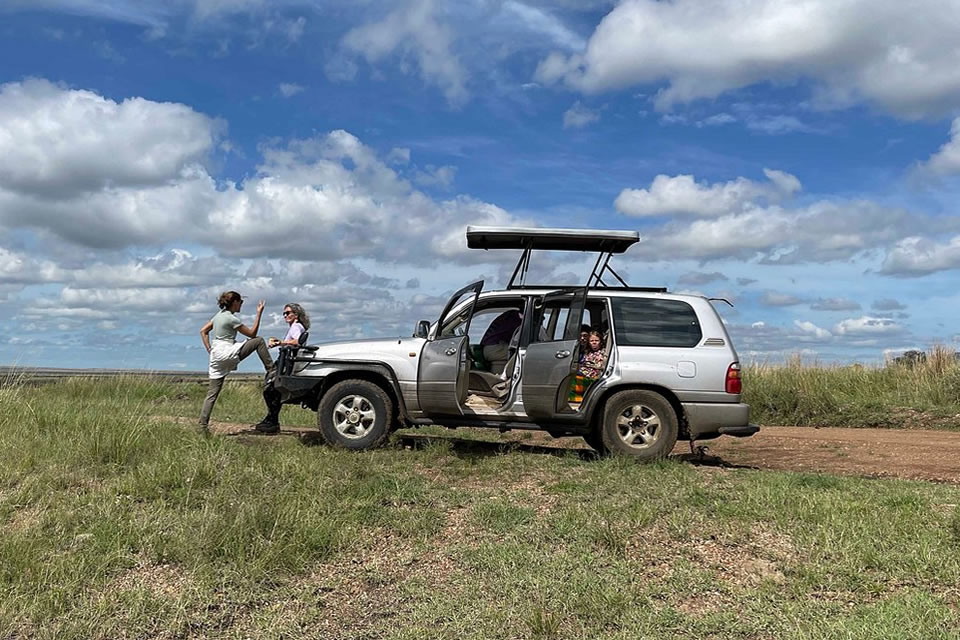Self drive tours are now the way to go for most tourists on safaris in Uganda because of the flexibility. However, Uganda self drive adventures come with certain guidelines meant to protect the wild animals in the National Park as well as the tourists. Therefore, the following are the safari etiquette for tourists on those self drive journeys;
Always share information on the animals with other tourists
In most cases, tourists tend to be reluctant and selfish to share information especially after spotting interesting wildlife species. You can share with others who might have not seen the animals hence make someone’s day also memorable.
Avoid cornering the wildlife with your car
When you sight the animals, give then room to go by their daily activities like feeding, playing, mating or grooming without disruption. In some moments, curious tourists spot some extraordinary wildlife such as the lions and leopards, and because of their exceptional, sometimes tourists get too close making the animals to get injured as they try to escape.
Similarly, give the animals enough space to walk. Tourists on self drive safaris are advised not to get too close to the wild animals regardless of how nice or interesting the sighting is. Just like we humans need out personal space, the wild animals also require their space or privacy to avoid making them aggressive. Always remember that the Parks offer homes to wild animals not pets, hence maintain a reasonable space from the animals. Giving them their personal space allows them to behave naturally hence you will enjoy authentic wildlife viewing experiences.
Avoid driving off the game tracks
National Parks have designated game tracks that you have to follow by the book. No matter how fascinating the sighting or view is, don’t drive off-track because that can call for fines. When you go off-track, there are high chances of destroying the vegetation or other wild life species such as snakes as well as the other small mammal species among others.
Always keep inside your car at all times
Tourists on self drives are strongly advised to keep in the vehicle at all times regardless of the interesting wildlife sighted. Imagine if you get caught by lions or leopards when you are outside the car. So don’t make the mistake of getting off the vehicle because as earlier mentioned, the Parks are homes to wild animals which are dangerous. However, you are free to get off the car within some designated areas of the Park, especially within areas of picnics or near the safari Lodges and these places always have a sign to show that you are free to get off the car.
Don’t sit on the vehicle window
Just because you were told not to get off the vehicle doesn’t mean you should sit by the window. However, vehicles with pop-out roofs are recommended for such safaris because they are safer yet offer spectacular views of the wildlife.
Avoid creating “jam” within the National Park
In most cases, when tourists sight exceptional wildlife species such as lions, leopards, Rhinos and elephants, there is a tendency of vehicles converging within the same area hence also blocking other tourists from seeing the animals. You are advised to stand at a distance to avoid creating jam within the National Parks.
Never feed the wildlife
Avoid feeding the wildlife because it is against the rules of management of National parks in Uganda although some tourists are always adamant with this guideline because it appears as fun to them. Some tourists throw bananas to the monkeys and baboons which is totally wrong.
Follow the speed limit in the National park
Tourists are advised to drive slowly not like a motor race because there is also a tendency of animals crossing the roads hence can lead to accidents in case you were driving fast. In most National parks in Uganda, the speed limit is 40 kilometers per hour.
Never shout at the wild animals
Avoid shouting at the animals no matter how excited you are or how phenomenal the sighting is. Noise scares the animals hence you miss the beautiful moments you would have enjoyed within the National Park. Therefore, you are advised to maintain silence so that they go about with their daily activities such as feeding, sleeping or napping, mating and grooming without disturbance.
Avoid littering within the National Park
Always follow the principle of Pack it in, pack it out to leave no garbage within the national Parks. This is an important guideline because littering degrades the Authenticity of the environment and degrades the habitat of these animals.


